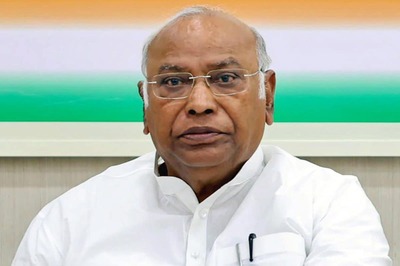
views
New Delhi: Underworld don Abu Salem will remain in India as the top Portugal Court has observed that it was not obliged to extradite the gangster back to the European country after it was held there was violation of deportation rules by Indian authorities.
Official sources in New Delhi on Wednesday explained the position on the extradition status of Salem against the backdrop of the top court rejecting India's plea challenging a Supreme Court verdict upholding a lower court order cancelling his extradition to India.
According to the sources, the Constitutional Court's Judges have made it clear that the judgement of lower court which acknowledged violation of extradition treaty does not, by itself, oblige India to render Salem back to Portugal.
The lower court had cancelled the extradition over violation of deportation rules by India.
CBI officials and MEA officials who have been in constant touch with their lawyers in Portugal feel there is no legal consequences for the violation of principle of speciality and the political and diplomatic instances would have to be launched by India to "find the best solution".
"A possible negotiation with the Portuguese government concerning the next steps of the case is not bound by any strict guidelines, neither defined by (Portugal) law," a legal opinion received from Portugal said.
It was felt that Ministry of External Affairs should submit a fresh guarantee reiterating the earlier commitment regarding non-execution of the death penalty or life imprisonment not exceeding 25 years.
The legal opinion of Portugal also suggested that for any fresh charges slapped on the gangster, he will be pardoned, the sources said.
Portuguese Constitutional Court had rejected India's plea challenging its Supreme Court order of upholding a lower court's order which had said that the extradition treaty in respect had been violated by India.
However, the grounds on which the Constitutional court had declined were that the requesting state is a mere participant and not a party to these proceedings.
India must not be granted the right to appeal from the decision of the Lisbon court of appeals and that such interpretation of the applicable provisions of the law are not unconstitutional, the Constitutional court said.
Salem, who is accused in the 1993 Mumbai bomb blasts case which left 250 dead, was extradited on November 11, 2005 from Portugal where he was arrested in 2002, along with his girl friend Monica Bedi.
The Portugal Supreme Court had upheld a lower court order saying that India had violated extradition rules for Salem case by slapping new charges against him which attracted death penalty.
India had moved to the Constitutional Court against the Supreme Court order besides annexing the order of February 17, 2011 of Supreme Court of India whereby stay on trial for all fresh cases, which invoked a death penalty or jail for 25 years, was ordered.
Delhi and Mumbai Police, however, had slapped charges which invoke death penalty against him leaving the government and the CBI red-faced.
Later, police wanted to withdraw the charges but the courts did not approve of it that led to a protracted legal battle which ended in Supreme Court in September 2010 that rejected the underworld don's plea.




















Comments
0 comment